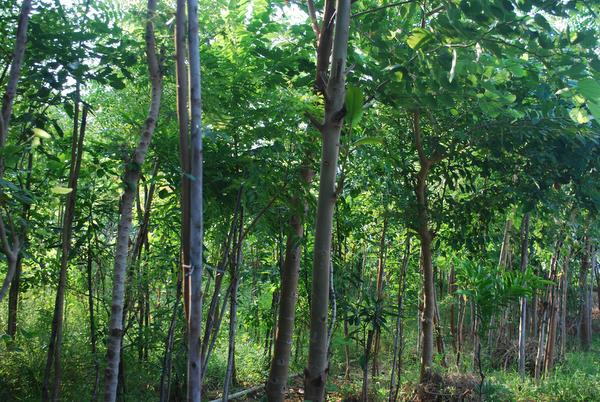Chandigarh: The National Forest Martyrs’ Day was marked on 11 September. It is meant for those people who sacrificed their lives for wildlife and forests in India. They fight for nurturing nature, and protecting flora and fauna. However, surprisingly, even as they go about performing their often risky duties, they are deprived of many basic rights that they should have got way back. This very day was brought into existence in 2013 by the Ministry of Environment and Forest. So far, since 2012-2017, 162 foresters, DFOs, and senior officers have laid down their lives in protecting forests, wildlife, rivers, mining, etc. The Centre does not yet have exact data on the forest martyrs. The Sunday Guardian spoke to several IFS officers, and found that there is a dire need to improve the law and system for “Forest Saviours”.
Why 11 September is important
After the Ministry of Environment and Forest made the declaration, this day officially came into existence and it was in 2013. The ministry selected this date (11 September) because, on this day in 1730, the Khejarli massacre took place in the country. On the orders of the then king Maharaja Abhay Singh of Rajasthan, the soldiers started cutting trees to provide wood for a new palace. During that time, a woman identified as Amrita Devi offered her head instead of the sacred Khejarli tree. Angry over the act, people in that village rose in protest and offered their lives in place of trees. After beheading her, the soldiers went on to slaughter over 350 people, including Amrita’s children. On hearing about this massacre, the shocked king instantly ordered his soldiers to stop killing the people and apologized to them who belonged to the Bishnoi community. Along with his apology, King Maharaja Abhay Singh made a declaration stating that no cutting of trees and killing of animals will take place in areas that are around the Bishnoi villages.
Last year, the issue was raised by a Rajya Sabha MP regarding inadequate compensation to forest martyrs’ families. Even as they roam in forests in roaring rains, checking on the wild lives’ well-being in inclement weather, risking their own lives, they do not have orders to shoot, but are allowed to keep a pistol just for the sake of it. This disparity means that families of forest martyrs have to pay a very heavy price.
Be it in Punjab, Gwalior, Uttarakhand, or Goa, many families of forest martyrs have been ruined. Deepu Rana, Forester (Beat GuradSankua), from Gwalior sacrificed his life on 4 May 2020 while he was patrolling in the remote forest areas with limited staff. He was trying to stop illegal wood smuggling and was shot dead there in the jungle. He hardly had any support system, and his family did not get any support from the said department. In the case of Punjab, a block forest officer, Davinder Singh, 48, and his colleague were seriously injured in an attack by the sand mafia at Majri block in Mohali district near Chandigarh on 15 June 2018.
V.S. Tanwar, IFS, Principal Chief Conservator of Forest, Haryana, said, “I’ll request the government to take note of this day and honour those who sacrificed their lives for the protection of forests and wildlife.”
Santosh Kumar, IFS, Additional Principal Chief Conservator of Forest and chief wildlife warden, Goa, said, “Unlike other forces, there is an institutional mechanism to handle families of martyred officers or staff, but in forests, there is no such mechanism. Forest officers laid down their lives as Unknown Warriors. In our area, many of our staff had martyred in later years and appallingly, there is no institutional mechanism or policy to address their families’ loss.”
Rajiv Bhartari, IFS, Principal Chief Conservator of Forest and Head of Forest Force of Uttarakhand, said, “In case of Uttarakhand, we have MritakAshrit Provision for the families of martyred staff when someone gets a job. There are some insurance facilities, too, that we often provide in such cases. Yet, there is need of having a reward system for such unknown warriors.”
Dr Abdul Qayum, IFS deputed in Chandigarh Forest and Wildlife Dept, said, “Strong policy for adequate compensation and reward mechanism, both at the Centre and state government
Jagannath Singh, IFS and Divisional Forest Officer from Anantpuram of Andhra Pradesh, said, “Forest martyrs’ families should be given preference benefits like a job for his wife or son or daughter, financial support to the family in the form of ex-gratia, educational support for all children like scholarships and some financial assistance. We work in dangerous conditions where smugglers have hacked many resources, our officers have died due to wild animal attacks, Naxal attacks, some officers died during fighting forest fires in summer.”

